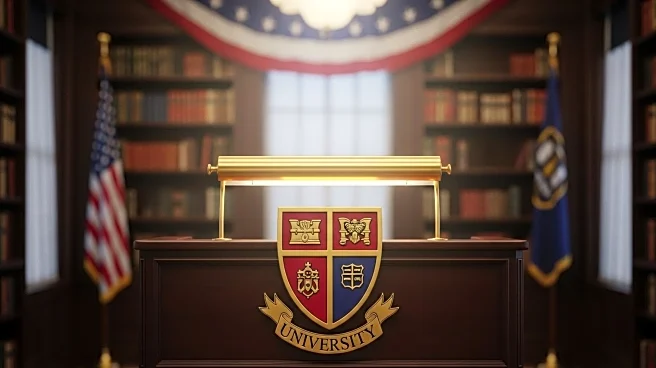What's Happening?
The Trump administration has initiated steps to restore federal funding to Harvard University following a federal judge's ruling that previous cuts were unconstitutional. The cuts, totaling over $2.6 billion, were initially imposed after Harvard resisted government demands in a federal investigation into campus antisemitism. The administration's actions were deemed illegal retaliation by the court. While Harvard has received notices of grant reinstatement from several federal agencies, actual funding has yet to be disbursed. The government plans to appeal the judge's decision, and negotiations between Harvard and the administration continue, though a resolution remains elusive.
Why It's Important?
The restoration of funding is crucial for Harvard, as it impacts a wide range of research initiatives and academic programs. The case highlights the tension between the Trump administration and higher education institutions, particularly regarding issues of academic freedom and government oversight. The outcome of this legal battle could set a precedent for how federal funding is used as leverage in disputes between the government and universities. The situation also underscores the broader political dynamics at play, as the administration seeks to reshape higher education policies and practices.
What's Next?
As the appeal process unfolds, both Harvard and the administration will continue to negotiate potential terms for restoring funding. The case may prompt other universities to reassess their compliance with federal demands, particularly in politically sensitive areas. The broader implications for academic freedom and government intervention in higher education will likely be a topic of ongoing debate among policymakers, educators, and legal experts.









